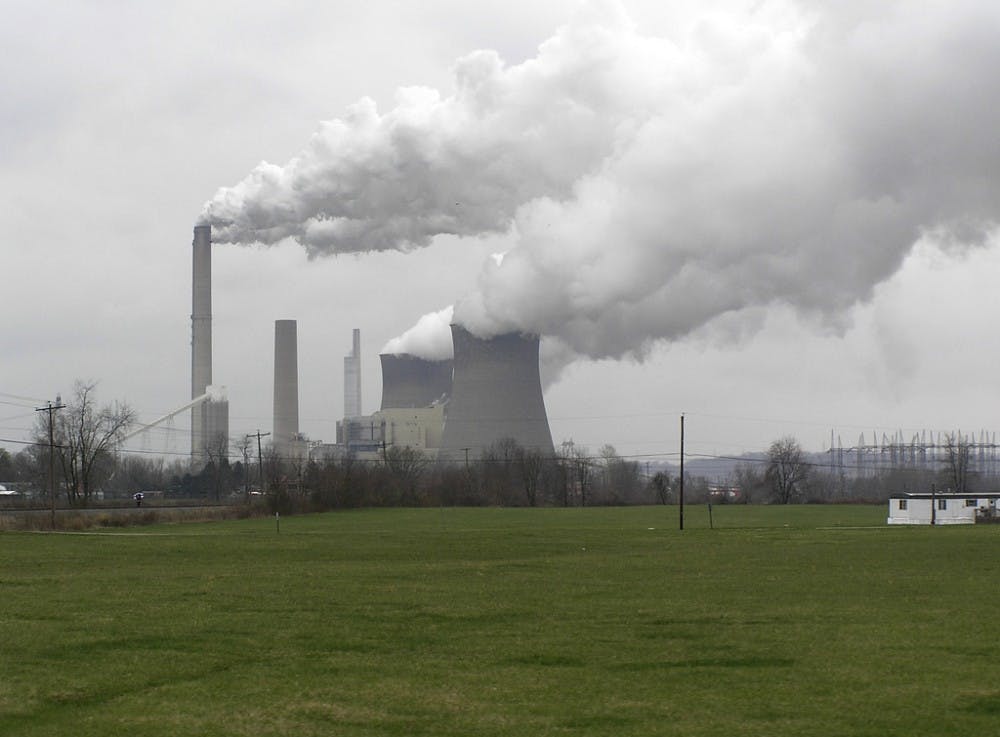A number of University-affiliated economists have signed on to a Wall Street Journal op-ed calling for a carbon tax to combat climate change.
The op-ed appeared on Jan. 16 and is signed by prominent economists from both major political parties. Acknowledging that global climate change is a “serious problem calling for immediate national action,” the authors of the op-ed propose several policy recommendations.
According to the proposal, the tax would increase every year until emission reduction goals are met, which would replace the need for non-market based climate regulations. The revenue generated from the tax would then be returned to taxpayers through tax refunds.
The proposal adds that the tax refunds would be universal, and thus available to taxpayers regardless of income.
In order to prevent carbon leakage, a border carbon adjustment system would also be established within the scope of the proposal, meaning that fees would be levied on imported goods manufactured in non-carbon-taxing countries.
A number of signatories affiliated with the University responded to requests for comment, clarifying their positions on the issue.
“It’s amazing that prominent economists have come together on this issue,” said N. Gregory Mankiw ’80, the current Robert M. Beren Professor of Economics at Harvard University, and the former Chairman of the Council of Economic Advisors under President George W. Bush.
Although Mankiw does not believe that the current political climate is favorable for such a proposal, he remains optimistic that politics could change in the long run, especially considering the possibility of a new president in 2020. He believes that a wide spectrum of the political class would agree to commit.

“You sign if you agree with the thrust and gist of it,” said Oliver Hart ’74, the Andrew E. Furer Professor of Economics at Harvard University, and the co-recipient of the 2016 Nobel Memorial Prize in Economic Sciences. “I agree with the basic idea that climate change is a serious problem and that the carbon tax is a good approach.”
Hart stated that he believes that the universal rebate is an important factor for selling the proposal, as there is a concern that lower income families who depend on driving could be impacted by the tax. He brought up the recent “Yellow Jacket” protests in France after gas price increases as a situation to avoid.
“We want to avoid making losers from this policy,” he said.
According to Hart, the carbon tax is not the only possible approach. Another popular suggestion is to sell off emission permits to the highest bidder, meaning companies could only emit as much carbon as they have bought permits for. Hart said that he does not have a strong view on which approach is more effective.

Hart said that economists prefer the carbon tax over replacing existing regulations. They believe that the government does not have a strong track record on picking the most effective green policies to subsidize.
“I agree with the basic idea that a carbon tax is the sensible way of getting the country on the road to reducing carbon emissions,” said Christopher A. Sims, the John J.F. Sherrerd ’52 University Professor of Economics and a co-recipient of the 2011 Nobel Memorial Prize in Economic Sciences.
Sims said that he believes that an actual bill would have to do away with the equal rebate proposed in the op-ed, as politicians would be under pressure to give more back to the families and the poor.
“It will be difficult [to implement this proposal], but I think that opinions are shifting on this,” said Sims. “The importance of global warming makes people more willing to consider this kind of an approach.”
He claimed that many politicians on the political right who understand the problem favor, even if not publicly, the carbon tax as the most efficient and market-oriented way to handle the problem.
“Many of the people who signed this letter are people who are not left wing radicals by any means,” he added.








